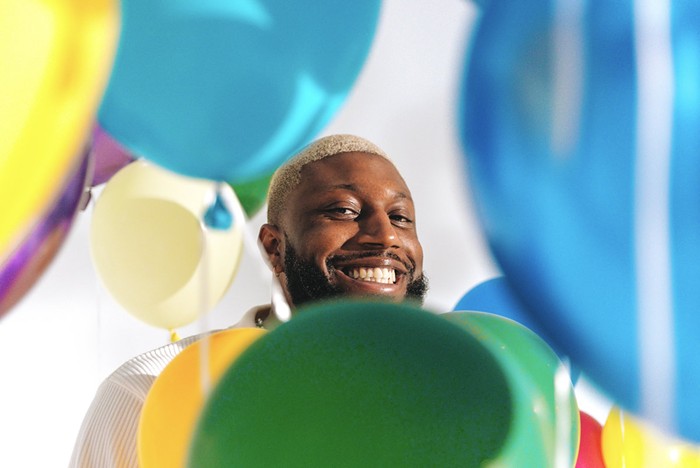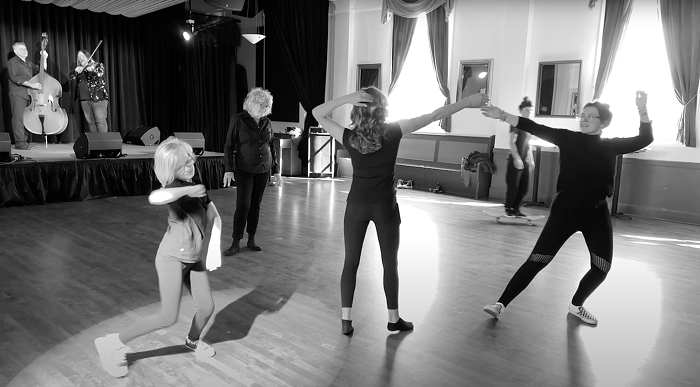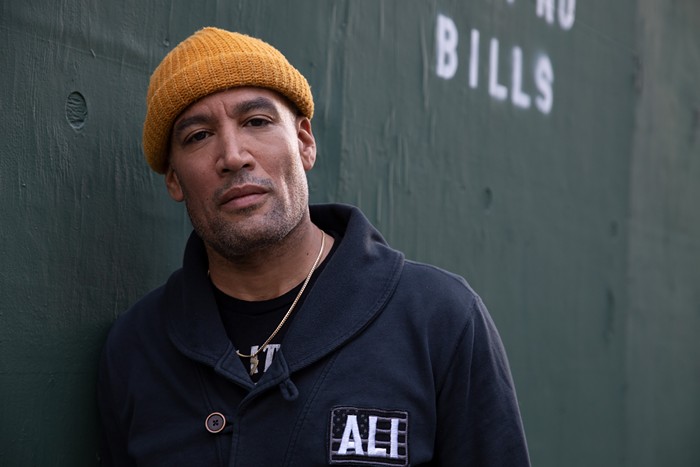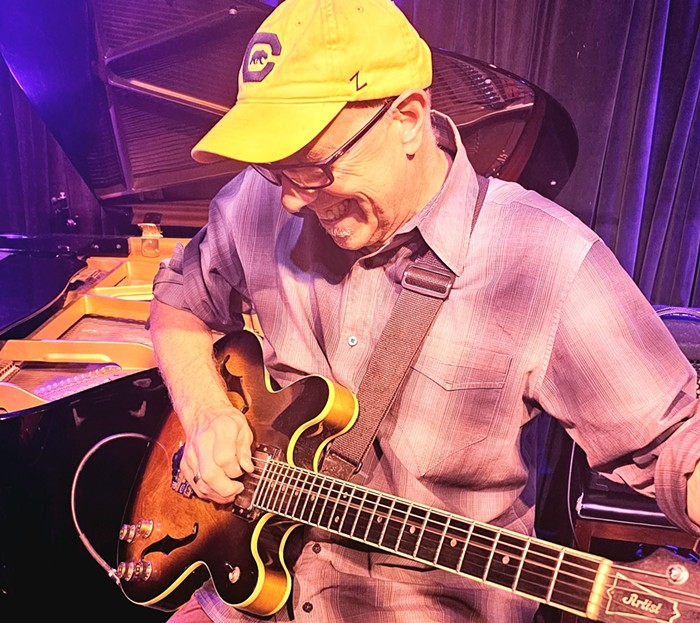EMILY SPRAGUE survived a hit-and-run collision on her bicycle in the winter of 2014. The wreck left Sprague traumatized with a broken neck, a severely broken arm, and a summer spent in isolation in her New York apartment.
Two years later, Sprague released The Birds Outside Sang, the debut LP of Florist—a former solo project turned four-piece made up of other musicians of the Brooklyn art collective the Epoch. The album is essentially a chronological retelling of Sprague's painful journey toward recovery, full of existential confusion in the midst of a prolonged crisis. Each song acts as an auditory journal entry, most of which were written in the depths of Sprague's isolation, recounting the experience with an uninhibited intensity through despairing pop and sythetic folk. The opening track, "Dark Light," begins with a simple distorted keyboard riff seemingly panged out in desperation.
"I was on some medication that was pretty scary for probably too long, and I basically was just knocked out for the better part of the summer of 2014," Sprague says. "I wrote ['Dark Light'] sitting in my little studio room with my one arm in a huge cast and with my neck brace. I managed to get myself off of this chair that I would sit in every day, hooked up my tape machine and played the song, and that's the recording on the album." Sprague wound up recording five of the album's 11 songs this way. "It was a weird, weird process, but I wanted sort of the essence of that to remain on the album."
The lyrics on the first half of The Birds Outside Sang fester in a trauma that starts with bodily pain but spirals into darker thoughts. Florist makes these thoughts seem never-ending, and this quiet sense of helplessness makes the album all the more unsettling. On "Rings Glow" Sprague sings, "If there's one thing that I believe, it's that the wind can make you a child again/If there's one thing that I believe, it's that my body will be the same wherever I bleed." The exhaust in Sprague's vocals bite with the forlorn irony that if she could only make it outside again, she could feel wind and see birds like she did as a kid.
"The melancholy and nostalgia I think comes from just a want for things to be that easy again, and also thinking about how that was never how the world was," she says. "Just seeing [childhood] differently when you reflect."
The somber intensity of the first half of the album culminates in "Thank You," where Sprague laments mortality in spoken word over a whistling organ: "I'm really grateful for the people I've met but that won't make me die any less." However, with the flip of the LP comes a distinct shift.
Side Two begins with the title track's R&B drum machine beat and another organ hook. Sprague croons about childhood and death in consecutive sentences, and recalls a whimsical memory where she asks a potential friend, "Do you and your friends wanna come into the field and watch the fireworks shoot up into the air?" Sprague powerfully captures those moments of childhood when connection with other kids was as simple as bonding over a shared love of fireworks, and demonstrates how difficult it can be to make the leap of faith that this connection requires. In this hopeful moment, though, it seems that Sprague is ready to reach out and ask for help.
"Even just having this thing happen, I like being alive sometimes," Sprague says with a soft chuckle over the phone, "The second half is sort of this post-recovery realization that I need those people in my life. I need help, and I love it."
This idea of needing and wanting help is manifested in the sing-along "1914," which is performed with bandmates Felix Walworth (of Told Slant), Jonnie Baker, and Rick Spataro. Oddly enough, this was the only song written before the accident, and was originally released as a straightforward solo folk track on Florist's 6 Days of Songs EP. This reimagining transforms the song from a solitary endeavor into a robust expression of love and communal care. It's similar to fellow Brooklyn lo-fi pop artist and Epoch collective member Frankie Cosmos' song "Embody," where she praises her friends—including Sprague—who "embody all the grace and lightness."
"When we were recording '1914' that was the moment for me when the album just totally came together. We were trying to do it as a band with other guitar parts and stuff like that and it just didn't sound intentional," says Sprague. "Then we all just decided to sing it together, and me and Jonnie had this recording of us playing guitar together that we slowed down on the tape machine. We recorded it in two takes, then listened to it immediately after and were like, 'Holy shit, this is what it has to be.'"
At its core The Birds Outside Sang is a story of survival. And while Florist's album is largely a hyper-personal narrative of Emily Sprague's struggle, the light comes from not only Sprague's strength and resilience but perhaps more so from the love and trust of friends. On the final track, "Only a Prayer, Nothing More," Sprague leaves us with a delicate guitar lead and the final words, "I thought that I saw the other side/But it was only sunlight in my eyes." It's an ending that doesn't draw conclusions or arrive at an epiphany; instead it denounces the hopeless certainty Sprague had at the beginning of the album and approaches the unknown with a childlike sense of acceptance and wonder.


















